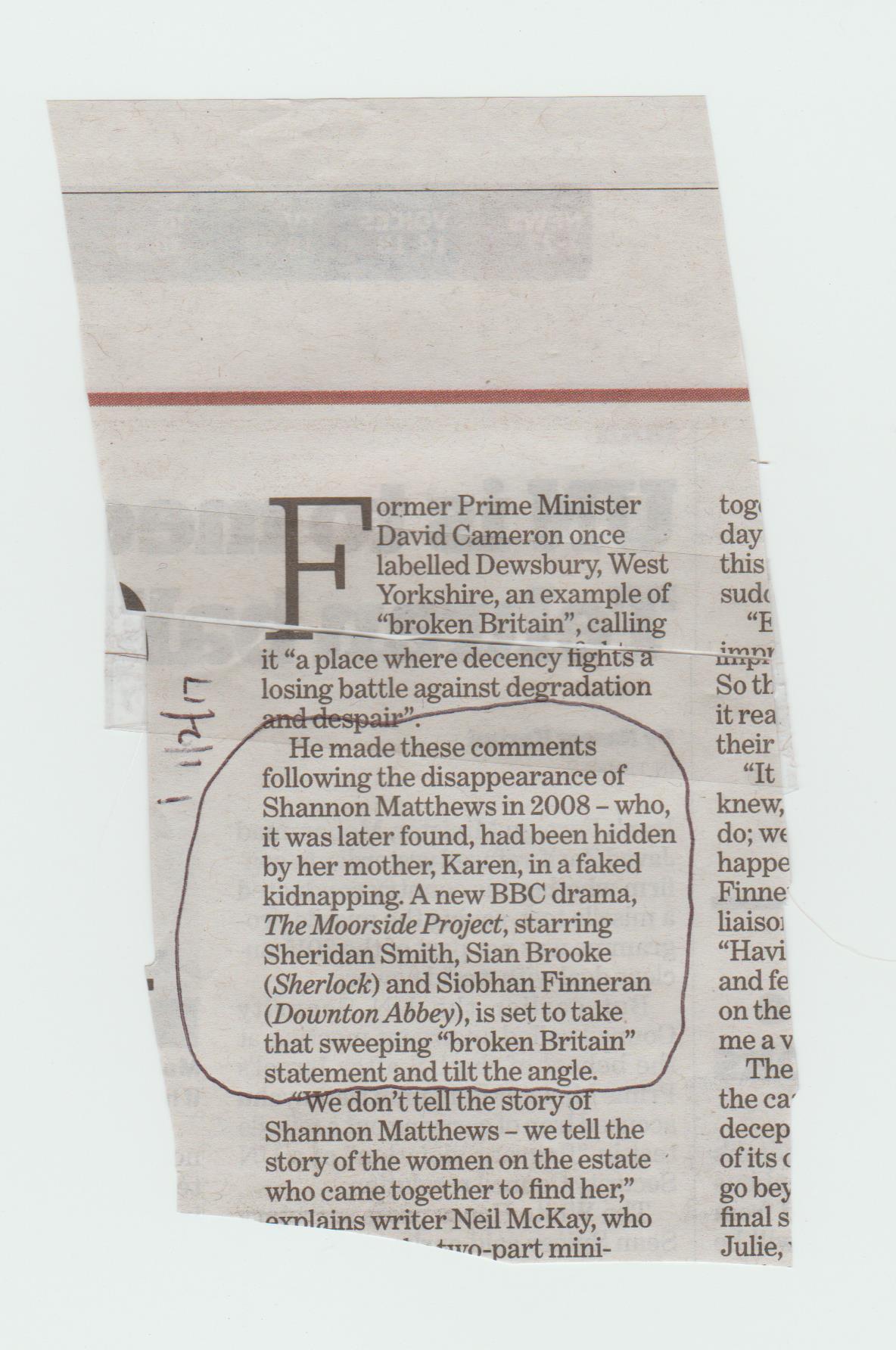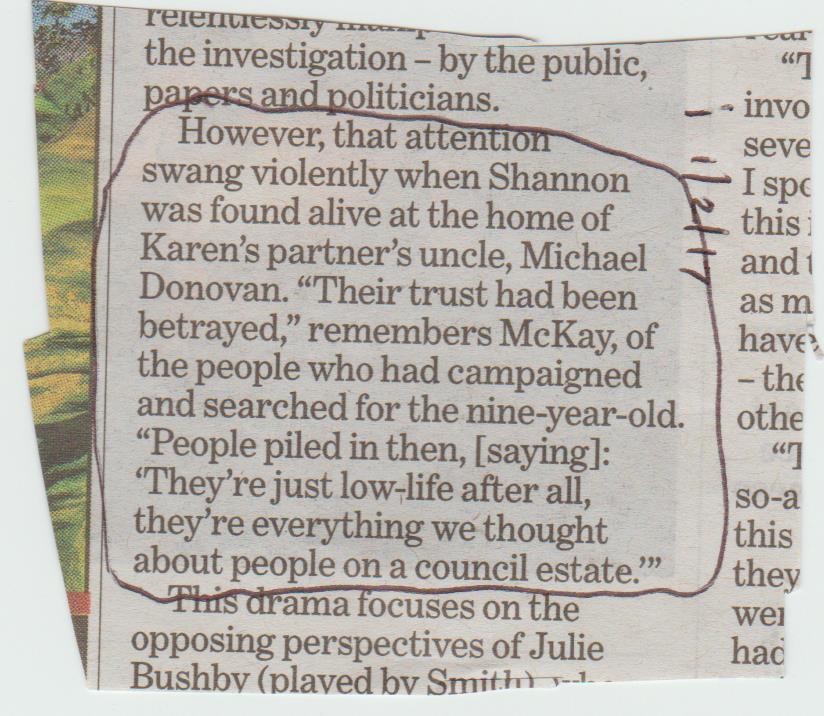
i newspaper, February 1, 2017
Four points handily packaged in one article. Above, the second sentence would be immensely improved by moving the words ‘in 2008’ so that it reads ‘the disappearance in 2008 of Shannon Matthews – who, it was later found . . .’ This places ‘who’ next to the person, rather than the year. A small change that makes a big difference. Incidentally (third paragraph) I would prefer not to use a quote by a new speaker without introducing him first. I don’t think it makes for easy reading to wonder who is speaking. Not everyone agrees though.

Here is a new word, ‘swang’. I can see how this may have happened, because the past tense of many similar words has an ‘a’, for example ‘swam’ and ‘sank’. In those cases the past participle (which is used with forms of ‘have’) is ‘swum’ and ‘sunk’. So you would have ‘the boat sank’ or ‘the boat had sunk’. Presumably the writer did not want to fall into this trap, but unfortunately ‘swing’ does not not follow the same pattern, and both the past tense and the participle are ‘swung’.
Further down is the word ‘saying’ in square brackets, to indicate that the speaker omitted the word but that is what he meant. I find this silly. Who on earth would complain about having the word ‘saying’ inserted into a quote? It makes the piece that bit less smooth to read.
At the end of that paragraph it would look better, as well as being correct, to close the single quotes, put the full stop, then close the double quotes, rather than have triple quotes.